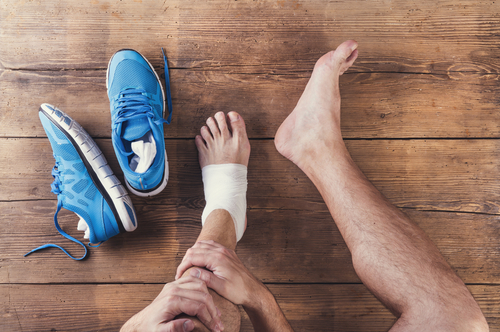
Warm weather is finally here. But while your mind might be ready to head outside to play sports and workout, your body may not. Below, Summit Health orthopedic surgeon Dr. Chris Inzerillo and CityMD emergency medicine physician Dr. Rajesh Geria share their advice on how to get back out and enjoy the great outdoors while avoiding injury.
Take It Easy
"Whether you've been sitting at a desk all winter and are ready to get outside, or your kids are preparing for spring sports, it should be a gradual return to physical activity," says Dr. Geria. "Otherwise, that's when the injuries happen." Tips include:
- Follow the 20% rule: "For example, if you're a runner and you want to run five miles," says Dr. Inzerillo," start with two miles and then the next week, go 20% more, and then go 20% more the following week. It's a good way to build your endurance."
- Space out your workouts: "Rather than doing a high-intensity workout every day, do them every other day as your body gets used to exercising again," advises Dr. Geria. "Injuries happen most often when your muscles are fatigued. You need to allow them to rest."
- Don't forget to stretch: "One of the things that we find prevents injuries is maintaining good joint flexibility," says Dr. Inzerillo. "Incorporating a good stretching routine or doing yoga is a good way to increase flexibility and core stability."
Consider the Sport
Two of the best things about spring sports is that they're outside and many of them provide natural social distancing during the COVID-19 pandemic. "Outdoor sports are reasonably safe," notes Dr. Inzerillo. While the doctors encourage caution with activities that require more close contact, like soccer and basketball, there are others that you can enjoy relatively safely, including:
- Tennis: Just be sure to keep your hands, rackets, and ball sanitized.
- Golf: Not only is it a sport you can enjoy alone, it's also possible to play with several people if you ensure that everyone takes COVID-19 safety precautions.
- Running, walking, or biking: While it's great to have a buddy for these activities, many people enjoy them as a chance for a little "me time."
- Baseball and softball: Because of the natural distance in these games, it's possible to play baseball safely. "Just avoid congregating in the dugout or huddling together for team meetings," says Dr. Geria. "That's when risk occurs."
- Hiking: There's no better way to enjoy nature than going on a hike. Take the time to embrace your natural surroundings as you emerge from hibernation.
Remember, participants should wear masks while engaging in activities where they may need to be close to others.
Stay Aware of Dangerous Conditions
As winter transitions to spring, it's natural to be excited about the seasonal change. But don't forget that some remnants of cold weather, like slush and mud, may remain. "One of the most common injuries we see in the urgent care setting is a sprained ankle or sprained foot," says Dr. Geria. The following steps help prevent slipping and falling:
- Only do activities during times of good visibility: "The days are still relatively short," says Dr. Inzerillo, "so it's still dark in the mornings and evenings. Make sure when you're running or biking that there is good light, so you can avoid branches on the ground or a slick spot."
- Avoid rough terrain: Always use caution when hiking, but especially when the ground is soggy and muddy. "When snow melts, things such as rocks and muddy hills get quite wet and unstable," says Dr. Inzerillo, “so tread carefully.”
Celebrate the Great Outdoors
While it's important to keep this cautionary advice in mind, don't let it prevent you from getting outside and enjoying yourself. "Being outside impacts your mood," says Dr. Geria. "Breathing in the fresh air can increase your cortisol, epinephrine, and norepinephrine levels—there's just something about being outdoors."
